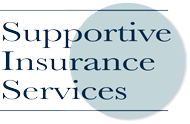 As an insurance agency, in order to do businesses in a non-resident state, you need to file a non-resident insurance licensing application. The state may then request verification of your Certificate of Authority, also known as a COA or a foreign qualification.
As an insurance agency, in order to do businesses in a non-resident state, you need to file a non-resident insurance licensing application. The state may then request verification of your Certificate of Authority, also known as a COA or a foreign qualification.
What is a COA and What Does it Have to do with Non-resident Insurance Licensing?
A Certificate of Authority is the process of registering a corporation or LLC with the Secretary of State’s office in a non-resident state. Some state insurance departments require this before they will issue a non-resident insurance license for the agency. Even if a specific state’s insurance licensing department doesn’t require a COA, you should always check with an attorney or tax advisor to determine whether one may still be required for your business. (To find out what is needed to obtain a COA, check out one of our previous blog posts.)
But what happens when your agency is no longer doing business in the non-resident state(s) for which you obtained non-resident insurance licensing? What are your obligations regarding Certificates of Authority? First and foremost, you must withdraw the COA once the entity is no longer doing business in the state. If you don’t, you will be responsible for any necessary taxes and annual report filings.
How to File a COA Withdrawal
In filing a COA withdrawal, you must complete a withdrawal form and pay a fee. Be aware that some jurisdictions may have additional requirements that you must meet before the state can cancel a Certificate of Authority. You should review a listing of requirements for the state from which you want to withdraw.
For example, an entity must be in good standing with its annual reports and tax filings in order to submit a withdrawal and may have to submit proof. Many states may also require tax clearance certificates from the state’s Department of Revenue with a COA withdrawal application. Additional requirement may include the registered agent’s signature and duplicate copies of the withdrawal form.
Once the Certificate of Authority is withdrawn, be sure to notify the registered agent service to discontinue its representation in order to avoid paying for the registered agent in the future.
Insurance Licensing – Keeping It All Straight
As you can see, there’s not only a lot to know when applying for non-resident insurance agency licensing but the same applies also when you no longer do business in a state. At Supportive Insurance Services, we can make sense of all the requirements and details for you and take care of both your insurance licensing requirements and COA withdrawals. Just give us a call at (317) 257-5734 to help with your agency’s insurance licensing needs.
Disclaimer: The insurance licensing information provided on this blog is not legal advice and the reader is advised to consult an attorney for questions regarding the legal ramifications of this information.
